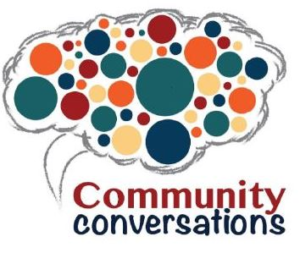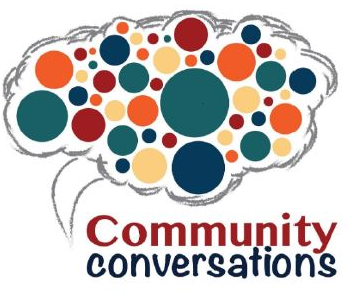Community Conversation Monday, February 7th Recording
 Posted on
Posted on  Click here for the recording of the first Newtown Community Conversation; a panel discussion of community leaders who responded to questions and who took inquiries from attendees. Find an associated bibliography here.
Click here for the recording of the first Newtown Community Conversation; a panel discussion of community leaders who responded to questions and who took inquiries from attendees. Find an associated bibliography here.
What are community dialogs?
- A community dialog is a facilitated discussion that provides the opportunity for individuals to discuss community-based issues, challenges, and aspirations.
- In thousands of communities across the U.S., these dialogs have helped people to understand their own and their neighbors’ feelings about themselves, each other, and various issues.
- Community dialogs obtain meaningful feedback from residents
- Conversations often revolve around improving community services for ethnically, economically, and geographically underserved and underrepresented audiences
- Community dialogs help better connect local organizations with potential future partners that have shared interests
Community dialogs are NOT about leaving the room with a list of to-dos and answers to all the questions. They ARE about discussing topics and issues in an inclusive and uninhibited environment with community representatives and stakeholders. We do have guiding principles, below.
The focus is on bringing together new partners and new voices to conversations and on connecting groups that are not usually at the same place. Representative panelists will vary and will be from such groups as educators, local government, Chamber of Commerce members and business organizations, representatives of traditionally underserved / underrepresented groups, engagement groups, clubs, the interfaith community, neighborhood associations, parenting groups, social service groups, and the local media.
Want to get involved? At future sessions we may need note takers, assistants, and facilitators.
Guiding principles / Ground Rules:
- Everyone participates; no one dominates.
- There are no right answers. There are no wrong answers.
- Keep an open mind. Listen carefully and try hard to understand the views of those who disagree with you.
- Help keep the discussion on track. Stick to the questions, try not to ramble.
- It is ok to disagree, but don’t be disagreeable.
- Have fun. This is not a chore, this is an opportunity.
Part of the library’s mission is to raise the level of civil discourse in our community.
Click here for a webliography of resources, books, podcasts, and films about this topic and check out our other curated lists.